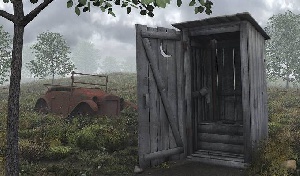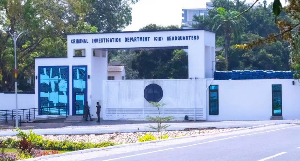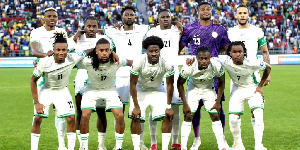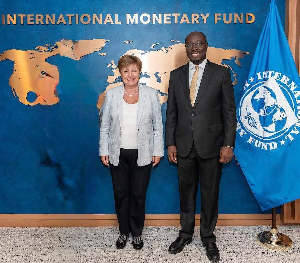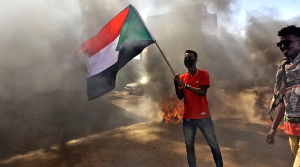The fight to make Ghana an Open Defecation Free (ODF) country has been taken to another level following the institutionalisation of an award scheme for Ghanaian journalists dubbed ‘Face of ODF Media Feature and Photo Contest’. It is a joint initiative of the Ministry of Local Government and Rural Development (MLGRD) and UNICEF, Ghana.
The scheme, launched in December last year, is meant to complement national efforts in attaining the goal of an ODF Ghana by 2020 as contained in the Ghana Sanitation and Water for All document of 2014. However, it is doubtful that the majority of Ghanaians are aware of this national goal which is just four years away.
The goal of an ODF Ghana by 2020 has no doubt been necessitated by the nationwide practice of open defecation (OD), popularly known as ‘free range’. It is a practice whereby people just defecate or shit in the open, leaving the faeces exposed and not giving a damn about the consequences.
But open defecation is deemed the riskiest of all poor sanitation practices, posing the greatest danger to human health and potentially having fatal consequences -- particularly for the most vulnerable, especially young children.
The risk lies in the fact that contact with human excreta can transmit many infectious diseases, including cholera and typhoid. It also affects the growth of children under five, leading to stunting -- a condition that distorts the physical growth and intellectual abilities of children.
Experts say one gramme of human faeces contains over 10 million germs, and once faeces is exposed coming into contact with it is very easy. The fact is that we pick up germs with our hands from various points -- including when we clean ourselves after using the toilet, during playing or working, from objects such as doorknobs and stair-railings, as well as from handshakes. As long as the immediate surroundings and wider environment is polluted with faecal matter, it stands to reason that everything within its reach will be contaminated with the germs.
Probably, the practice is on-going because people are ignorant of the relationship between the practice and their health and general well-being. Additionally, they may be unaware that the practice perpetuates a vicious cycle of disease and entrenches poverty. Information dissemination is therefore crucial in the national fight to eliminate open defecation from the country.
To this end, the media is paramount and their contribution to the campaign against open defecation should be appreciated. But much more media innovativeness in investigating into issues, packaging the information collated and disseminating it to the public needs to be recognised and awarded. The fact is that it’s the constitutional mandate of the media to disseminate information on all matters of public interest to the country’s populace.
The Ghanaian media was reminded of this constitutional obligation by David Duncan, Chief of WASH (Water Sanitation and Hygiene) UNICEF-Ghana, at the ‘Face of ODF Media Feature and Photo Contest’, launch in Accra on Tuesday, December 2015. He said the Constitutional provision establishing the media’s freedom and independence also charges them to uphold government’s responsibility and accountability to the people of Ghana.
Mr. Duncan stated: “This is both a very powerful right and a very powerful responsibility”. He noted that in the national quest to end open defecation, the media could discharge its responsibility “by highlighting the challenges of open defecation in Ghana; by highlighting successes and failures in rising to this challenge; by telling the stories of how Ghanaians are impacted by open defecation, and how they are responding; and by raising the profile of open defecation”.
He added that: “Both the media and Ghanaian public are then well-placed to question how the country is not responding to these challenges and to hold ourselves accountable.” Mr. Duncan expressed concern about the almost stagnant pace toward eliminating open defecation from Ghana. He said while the rest of the world is improving in the area of ensuring that most of the population have access to toilets, “Ghana seems to be standing still”.
To support this claim, Mr. Duncan quoted some national statistics. “In 1990, 22% of Ghanaians defecated in the open. The 2014 DHS survey tells us that 21% of Ghanaians still do so -- a one percent improvement in 24 years.” He pointed out: “At this rate, Ghana will be free of open defecation in 500 years”.
Mr. Duncan is of the view that the media’s contribution can help reverse the current trend and facilitate the process toward attaining the goal of an Open Defecation Free Ghana.
The Deputy Director of the Environmental Health and Sanitation Directorate of the MLGRD, Cosmas Kambozie, is of the same view. He said: “With the media’s support, the national goal of ODF Ghana can be achieved in the nearest foreseeable future”. He however pointed out that in addition to media contribution, realisating the goal of an ODF Ghana will require “significantly increased investments in order to improve sanitation”.
Mr. Kambozie noted that investments in sanitation will not only provide basic services, but also reap benefits well beyond the water and sanitation sector. He stressed that “investments in water and sanitation are in fact investments in health, education, the environment and poverty reduction”.
The ‘Face of ODF Media Feature and Photo Contest’ is open to all Ghanaian journalists. Thematic areas for the media to focus on as stated in the factsheet on the Contest include: The menace of open defecation; Community efforts to become ODF; Exemplary leadership (by DCEs, REHOs, natural leaders etc.) that has triggered ODF initiatives; conflicts in the implementation of the ODF initiatives and how they can be turned around for the benefit of the people and nation at large; and a cost benefit analysis of OD & ODF.
According to the factsheet, submitted articles should have been published or broadcast between January to June 2016. These stories should be accompanied by compelling photos that can tell stories on their own. Submissions from the radio categories are however exempted from this criteria. The choice of words and tone of voice in such stories should vividly portray the imagery of the ‘Face of ODF’.
Opinions of Wednesday, 3 February 2016
Columnist: B&FT Online

